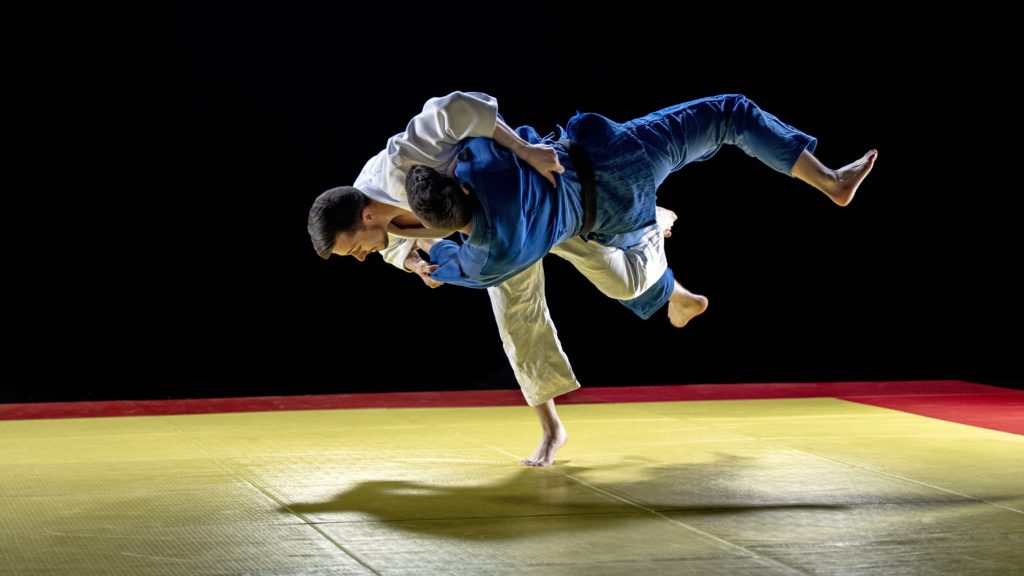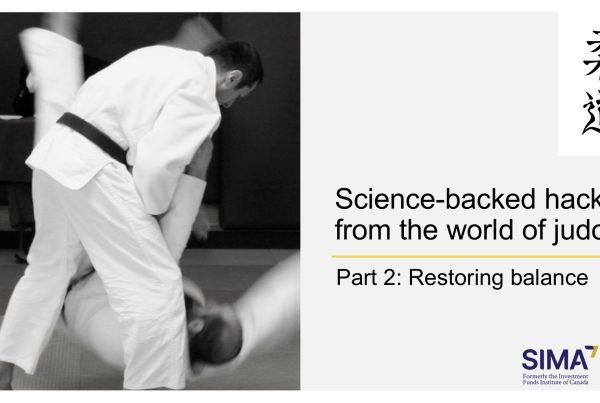I’ve been told that I use a lot of images and analogies – of metaphors – whether in my writing or in the way I speak in general. Even in a business context, when many people have a preference for cold facts, objective truths and neatly quantified measures, I tend to see and convey things in terms of images, metaphors and analogies.
It can, and in fact has been, debated whether there exists such a thing as completely objective facts outside of their relevant context. Without getting into that debate today, I do believe that metaphors are more than simple verbal or literary flourish. To illustrate this, I’d like to offer an example of how one’s frame of reference could result in two people experiencing a very same interaction in very different ways and, as a result, providing very different accounts of that same experience. The experience in question is a debate, or an argument.
In their now-classic “Metaphors We Live By”, George Lakoff and Mark Johnson spent a fair amount of time discussing this concept of arguments:
“Many of the things we do in arguing are partially structured by the concept of war. Though there is no physical battle, there is verbal battle, and the structure of an argument—attack, defense, counterattack, etc.—reflects this. It is in this sense that the ARGUMENT IS WAR metaphor is one that we live by in this culture; it structures the actions we perform in arguing.
Try to imagine a culture where arguments are not viewed in terms of war, where no one wins or loses, where there is no sense of attacking or defending, gaining or losing ground. Imagine a culture where an argument is viewed as a dance, the participants are seen as performers, and the goal is to perform in a balanced and aesthetically pleasing way. In such a culture, people would view arguments differently, experience them differently, carry them out differently, and talk about them differently.” (Metaphors We Live By, pp. 4-5).
As many people know, I started practicing judo when I was 11 and never stopped. Like other traditional martial arts, judo is underpinned by an elaborate system of thought, one that, by design, has had an important influence on how I see and understand the world around me. For me, imagining debate – or argument – as a balanced and aesthetically pleasing dance is not at all difficult.
I have written previously that if you were to step into a dojo during randori practice, you might be forgiven for believing that the players were engaged in an all-out contest, each attempting to secure victory over his or her opponent. But while the objective in shiai is to score a win over your opponent (as in a tournament), the purpose of randori is to learn and improve with the help of your partner. Far from the intense competition that it may resemble to the untrained eye, randori is an exercise in intense collaboration. (cf. my previous article on the topic of randori, “It only works if it’s mutually beneficial”)
If I say that for me, having a vigorous debate with a colleague on an important question that requires careful consideration is a form of intense collaboration, I am invoking what is, for me, a powerful structuring metaphor: DEBATE IS RANDORI. Here are some of the key entailments of this metaphor:
DEBATE IS RANDORI
- It looks like a confrontation between two people
- The parties move and seek to maintain their balance while at the same time breaking their opponent’s own balance
- Both parties draw from a vast store of knowledge and abilities to secure advantages large and small throughout the exercise
- There is little benefit if the randori ends too quickly
- When required, parties will voluntarily put themselves in jeopardy to allow both parties to fully benefit from the exercise
- The parties are friendly towards each other
- There is no desire to injure the other party, either physically or emotionally
- Both parties learn and grow through the process
- There is no shame in taking a fall or tapping out
- There is no winner and no loser
- It is beautiful to watch (i.e. aesthetically pleasing)
- There is mutual joy and satisfaction to be had from taking part in the exercise
- The exercise strengthens feelings of mutual respect and friendship
- The ultimate result is a better outcome for all
Having internalized, over many decades, that a vigorous confrontation can in fact be an exercise in intense collaboration with the many entailments listed above (and many more), DEBATE IS RANDORI, for me, has taken on a powerful ability to shape how I see and understand everyday reality.
But of course, if I look at debate and argument through the lens DEBATE IS RANDORI while you, as a result of your own experiences and education, tend to understand things through the DEBATE IS WAR metaphor previously mentioned, a number of things can be expected:
First, if you haven’t practiced judo for many years as I have, there is likely no way you can see and experience things the way I do – even if I do my very best to convey all of this to you through words. As a result, you can be expected to experience very different feelings at the idea of getting pulled into a debate or argument, and to approach the entire thing quite differently from the way I would. Second, your view of people who like to debate things may also be different from mine. DEBATE IS WAR may lead you to be more comfortable with what you would think of as a less adversarial, more “collaborative” approach, and perceive as argumentative and uncollaborative people who enjoy (i.e. get joy from) debating things.
But it’s not just things like debate and argument that metaphors help shape and structure. Another example would be the ideas that we have of companies like the ones many of us work for.
The corporation has been described by author Elizabeth Anderson as a government, one that “owns all of the nonlabor means of production in the society it governs.” (Private Government, 2017, pp. 37-38). Some look at the corporation in purely transactional terms, as a nexus of contracts in which parties seek to maximize their selfish interests (see The Form of the Firm, pp. 107-108). Others think of companies as manmade machines and employees, their components (When More Is Not Better, pp. 31-32). Daniel J. Levitin has written that companies “can be thought of as transactive memory systems… with individual humans effectively playing the role of neural networks” (The Organized Mind, p. 273), while others yet have suggested that a more useful metaphor would be to think of companies and the economy more broadly as a natural system, like a rainforest. (When More Is Not Better, pp. 79-80)
Whether it be a debate or an argument, or a company, how you look at the world can’t help but shape how you feel, act and behave. Your decisions – as well as your decision-making processes – will likely differ depending on whether you see companies as complex adaptive systems such as rainforests, or manmade machines with “independent parts that can be optimized.” (When More Is Not Better, p. 79) Similarly, your willingness to get into vigorous debates, how you play your part in such debates, and how you experience them, will necessarily be different depending on whether your frame of reference is ARGUMENT IS WAR or DEBATE IS RANDORI.
As Lakoff and Johnson explain:
“In all aspects of life, not just in politics or in love, we define our reality in terms of metaphors and then proceed to act on the basis of the metaphors. We draw inferences, set goals, make commitments, and execute plans, all on the basis of how we in part structure our experience, consciously and unconsciously, by means of metaphor.” (Metaphors We Live By, p. 158)
I do use a lot of metaphors, often without even realizing it, and so do you!
Elizabeth Anderson. Private Government: How Employers Rule our Lives (and Why We Don’t Talk About It). Princeton University Press, 2017, 196 pages.
George Lakoff and Mark Johnson. Metaphors to Live By, revised edition with a new afterword, University of Chicago Press, 2003, 276 pages.
Daniel J. Levitin. The Organized Mind: Thinking Straight in the Age of Information Overload. Penguin Canada, 2015, 528 pages.
Roger L. Martin. When More is Not Better: Overcoming America’s Obsession with Economic Efficiency. Harvard Business Review Press, 2020, 241 pages.
Abraham A. Singer. The Form Of The Firm: A Normative Political Theory Of The Corporation. Oxford University Press, 2019, 296 pages.



